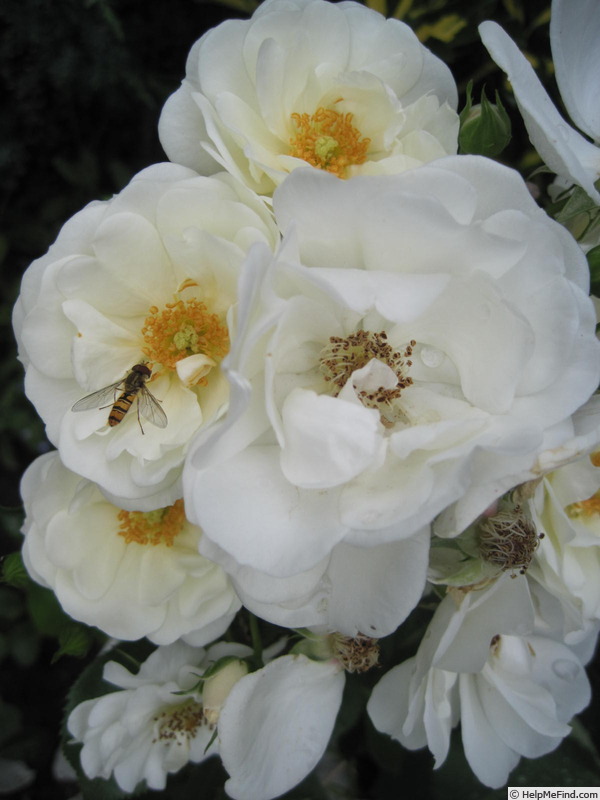|
|
'Rigo Innocencia ®' rose Description

Photo courtesy of Ika
HMF Ratings:
40 favorite votes.
Average rating:
EXCELLENT.
Class:
Floribunda, Shrub. (Series: Vigorosa® Collection)
Bloom:
White or white blend. Moderate fragrance. Average diameter 1.5". Small to medium, semi-double (9-16 petals), cluster-flowered, in large clusters bloom form. Continuous (perpetual) bloom throughout the season.
Habit:
Bushy, compact. Small, glossy, dark green foliage.
Height: up to 20" (up to 50cm). Width: up to 20" (up to 50cm).
Growing:
USDA zone 6b through 9b (default). Can be used for beds and borders, container rose, garden or ground cover. Disease susceptibility: very disease resistant, susceptible to Mildew. Remove spent blooms to encourage re-bloom. Spring Pruning: Remove old canes and dead or diseased wood and cut back canes that cross. In warmer climates, cut back the remaining canes by about one-third. In colder areas, you'll probably find you'll have to prune a little more than that.
Patents:
Australia - Patent No: AU3823P on 6 Jun 2009 Application No: 2006/103 on 8 May 2006 VIEW PBR PATENTin May 1993 Seed parent unnamed seedling was crossed with pollen parent ‘Noaschnee’. Hips produced remained on bush until Oct (autumn) when harvested and shelled. In Feb 1994 seeds were planted under controlled greenhouse conditions: germination commenced in Feb, and seedlings first bloomed in Apr (Northern Hemisphere). Out of this seedling population, the best seedlings were selected for further trials. From these the seedling, now known as ‘Korstarnow’, was selected for further testing. This new variety was multiplied in number by vegetative propagation via shoot cuttings, flowered for over five generations and appeared genetically stable. Selection criteria: improved garden rose variety. Breeding directed by William Kordes, of W.Kordes’ Sohne Rosenschulen GMBH & Co KG, Sparrieshoop, Germany.
First sold in Germany in Nov 2003 European Union - Patent on 2003 Germany - Patent on 2002
|